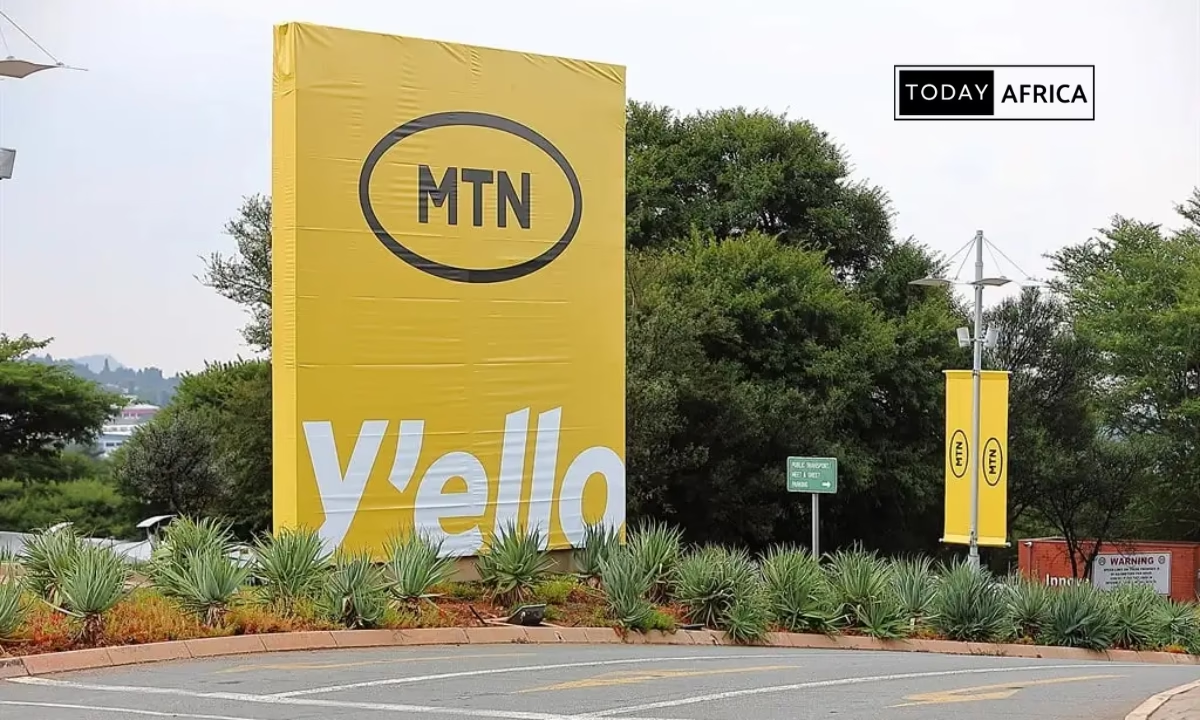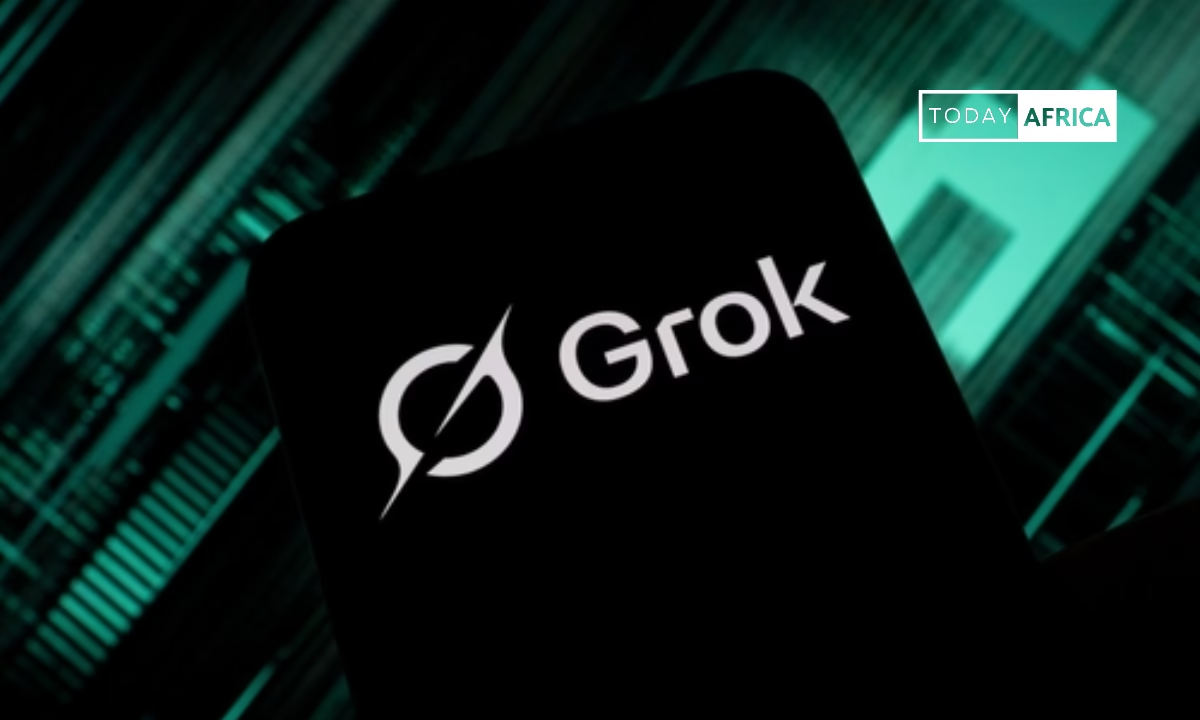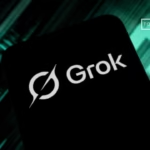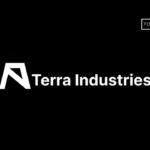Kelechi Uchenna is a serial enterpreneur who has 8 years experience building businesses within the edutech sector. Currently building Nigenius, a tech platform that helps parents hire amazing tutors and teachers build out innovative lesson plans for their students.
Kelechi Uchenna shared with Today Africa the story of Nigenius, how it began, and where they are now.
Tell us a bit about yourself
Kelechi Uchenna is an environmental engineer by academic background and I’m also an entrepreneur of an edtech company called Nigenius. I’m a father, I’m a friend, and I live in Abuja, the federal capital territory. I have been running Nigenius for six years now and I have nine years experience in education technology, ICT, and training. And I love technology and I’m just a simple guy, basically.
What inspired you to start your company and what problem does it solve in society?
First of all, I’ll talk about what Nigenius is. Nigenius is your one-stop online platform that provides teachers with resources, parents with tutoring services, and we help schools deliver STEM curriculums to specialized courses like coding and robotics.
What inspired me to start Nigenius? It’s a very long story, but I’ll make it as short as possible. In 2015, I was out of work, and I was waiting on a job that never came and I knew I had to solve a problem and also build a business. So that led me to start the first company which was called Innovative Digital Learning, which is a company that trains teachers in teaching with technology.
However, after training teachers across six schools between 2015 and 2017. A colleague of mine in a program that I joined asked me a question and she was like, Kelechi, how are you sure that you’re transforming the way these teachers teach?

And that question was very important for me because I had to know that we’re actually making an impact. So I went back to all the schools that we had trained all the teachers, and I wanted to know whether they had applied all the things that we’ve taught them during the training, how they started teaching PowerPoint presentations, were they doing videos in their classrooms, were they carrying out projects with their students.
Only 20% of these teachers, two out of 10 of these teachers were able to apply these things that they learned. And when I asked them what the challenge was, it was because they spent a lot of time planning lessons. Also, they still didn’t know how to access quality teaching resources online. So at that point, I knew it was time to build something that would help these teachers.
And these teachers were overworked and also underpaid. They spent a lot of time planning lessons. So we said, let’s build this technology solution that will help reduce the workload of lesson planning for teachers and also provide them with a stream of quality teaching resources so they can create engaging classrooms for their students. Help them build geniuses in Nigerian classrooms. And that’s how we got the name, Nigenius.
So early 2018, we started building the Nigenius’ first version, which was a mobile application. And we went live on October 1, 2018. That’s when we launched the first version of Nigenius. And that is the problem it’s solving. Nigenius is helping teachers have quick and easy access to quality teaching resources. So they can create better lessons and deliver quality education, especially for teachers who don’t know how to research and who don’t have access.

We’re also helping these teachers earn extra income by connecting them to parents to deliver online or in-person lessons via tutoring. And in 2022, we launched our STEM service for schools, which helps schools deliver STEM curriculums because most schools don’t have resources to carry out classes like coding and robotics. And a lot of teachers are not qualified enough to teach coding and robotics STEM courses.
So that’s where we come in and help them solve this problem by providing them with qualified STEM teachers that can deliver courses like coding and robotics in their schools.
Read Also: How Dr. Jesca Mhoja Nkwabi is Building a Global Business with Local Impact
Can you tell us the process of launching Nigenius?
So sometime in 2017, having launched my first company, which was Innovative Digital Learning, I got into an accelerator program called BET 7. I don’t know if you remember BET 7. BET 7 was an accelerator program that was done by old Diamond Bank.
So in this program, 50 entrepreneurs were trained for about three months, three to four months in the Lagos Business School Enterprise Development Center. They trained us on everything from marketing and sales to operations, to business etiquette, to legal frameworks for running businesses, to communication skills.
This was my first introduction into the skills and the know-how on building a sustainable enterprise. So with the information and knowledge I got from the Accelerator program, I was able to launch Nigenius in 2018. I understood what it took and what were the requirements to build a business.
Some key things that we did was first, the business has to be registered legally. We did the paperwork with CAC and got all the documentation, and have a website. We launched the first version of our website. Already you need to build the technology so we had to build the mobile application and also build the promotional website. Test the application, did a pilot in 2019 to test it with the market before we started pushing it out to customers.

You also need to have social media. There has to be social media because social media helps you reach more people than what offline media will do for you. So we had to create social media pages, the websites, invoicing, and basically have an understanding of the technology and the sales process.
Also understand the business model as well. Because they say the business model before the business. How is the business going to make money? It’s very, very important. So these were the things that we set up. Obviously, in the early stages, a lot of mistakes were made. We didn’t monetize Nigenius until after three years.
We got our first full big payments in 2021 when we launched the tutoring service. While we launched the mobile app in 2021, we’re running on a subscription-based business, but we got very few subscriptions which are not able to build a sustainable business. So there were a lot of hard lessons learned as well.
How are you able to raise capital for your business?
Before you start a business, you need to have capital. Do you need so much capital? No. I’m a big proponent of starting small and thinking big. Start small, think big, but you need to have some form of capital. At that point, I had some money saved up. In 2018, I had some money saved up, less than a million, let’s just put it that way.
And at that point, there was a technology boom going on in Nigeria. A lot of tech startups were springing up, mobile apps were launching businesses in Lagos at that time. And I knew that we had to jump into this technology revolution in Nigeria. So if I told myself, you can do two things. You want to build a business, you have this X amount of money you might as well use this money to do this thing.
Because if you keep this money, you will spend it on expenses. I was already newly married. I’ll spend it on house rent, food, and all those things. But if I invest this money in this business that I want to build, I will end up building something in X amount of years. So that’s the first thing. You have money and you can’t be claiming you want to build a business. And you have X amount of money sitting down somewhere, and you now want the business to come up from nowhere.
You have to invest money in building your business. So I committed that money that I had saved up into the business. And I started building the application. Also sustaining the business because we were not revenue generating for a while. So how did I sustain the business? I had like two other businesses I was running. As an engineer, I was also running my own oil and gas servicing company at that time on the side.
So I use the proceeds from that business to also support some expenses for Nigenius. And that helped us between the first and second year to be sustainable, to be able to keep the lights on. You have to pay for server costs, you have to pay for website domains and hosting fees, you know, and Innovative Digital, my other company, was still running as well.

I was a very busy human being. I was running three businesses at the same time. And I remember a very good friend of mine told me that, this is Lagos, you can’t be doing only one thing. You have to be doing multiple things. So the resources and the funding from the other businesses helped support Nigenius.
Sometime in 2020, a friend of mine came in as an angel investor, and gave us a small investment in dollars. That also helped because that was a very tough time. We just built the second version of Nigenius, which is the version that’s currently online now. That’s sustained, still not revenue generating in 2020.
And in 2021 as well, another good friend of mine, came in as another angel and gave me another small investment, less than $5,000. And the first one was less than $3,000. So they gave me these investments. And this helped us until 2021, when we now had to do a pivot and we became revenue generating. And the rest is history, as you can see today.
What is your business model like and how does Nigenius generate revenue?
When we started first in 2018 and from 2018 to 2020, we had a mobile app and a web application that was providing teachers with lesson plans and teaching resources. We were doing this as a subscription-based service where schools and teachers could pay month on month so that they can have access to the platform to get lesson plans and teaching resources.
People were not paying. This period was our drought period. Nobody was paying. So the business model at this point was a subscription-based period. In 2021, when we now launched our tutoring service, we now made the teaching resource application free. So we now have a lot of teachers coming in to get the resources free. Then we now have tutoring services, connecting the teachers to the parents to do lessons. What we’ll call in Nigeria, lesson teachers or home tutors.
So our business model at this point changed. What we do is that the parents will pay us for the lesson. We will hold the funds. Once the teacher finishes delivering the lessons for the monthly cycle for the student, we would pay the teacher and take our commission. So after the pivot, we move to a commission based business model. For our tutoring service, our business model is commission based. So parents pay X amount of money. We hold that money. We pay the teacher and we take out Y, which is our commission.

Now for our schools, it’s still a commission-based model as well. When we started providing STEM tutoring services for schools, which is Coding and Robotics. We have an elite team of Coding and Robotics tutors, which we send to schools. They go there, they deliver the Coding and Robotics tutors. The school pays us, we take our commission and we pay the tutors that go to the school. So we currently run a commission-based model.
Read Also: From Lab Scientist to a Luxury Cake Brand Owner – Elizabeth Solaru
What differentiate Nigenius from other numerous edtech companies in Nigeria and Africa?
2020 was an important year because a lot of people were going into the online solutions. Covid had come and there were school lockdowns so it was a year that a lot of creativity blossomed. But it was also tough for us because we just launched. We spent six months doing covid that year building the web application version 2 of Nigenius which is what we have today. And the other six months trying to sell it and there was no revenue.
So what kept us alive, which is the first part of the question, was the fact we were able to think differently. We asked ourselves, who are the people making money in edtech? And what are they doing? We had people who were doing teaching resources and content resources.
We had people who were doing school management systems and people who were doing tutoring. The player that was doing content for students at that time just raised a lot of money. So they had a lot of money to take themselves through to market and to last, we didn’t have that.
School management systems already had vast, robust technology infrastructure. And schools were paying, right? But we couldn’t transform our application to a school management system. But now there were other people doing tutoring. And what do tutoring people have? They have teachers, and they have parents. We had teachers. All we needed to do was find parents. So we did the pivot and quickly connected the teachers that we had to parents who were looking for tutors. So our different thinking kept us alive.

That period, you see a lot of companies had to shut down but we didn’t because in 2021, we’re able to now become revenue generating and stay afloat. What are our unique selling points in Nigenius? And what differentiates us from all the other brands out there? And I’ll tell you, number one is, in terms of teaching resources, no local player has been able to effectively crack the local distribution of teaching resources like we have done.
If you go on Nigenius, on our teaching resource application, all a teacher needs to do is type in a topic, select a class and a subject. Nigenius will give you a well-researched lesson plan and a unique blend of teaching resources for you to teach inline with the Nigerian curriculum. No other person does that like we do in Nigeria for teaching resources. That’s number one.
In terms of tutoring, we are unique because we serve both B2C and B2B customers. Most of our competitors, serve only parents or serve only schools. We serve parents and customers, which positions us in a strategic part of the market.
So we’re able to generate revenue from two markets. That’s one strategic thing about us. And even for our competitors in the tutoring space, we have a teaching resource platform that attracts quality teachers and also provides them with the resources to deliver engaging lessons. So that’s our unique selling point.
Since you launched, what has worked for you and for your business in attracting and retaining customers?
I can humbly, I will say proudly, can humbly say that today, Nigenius serves more than 300 parents across four countries; Nigeria, the UK, the United States, and Canada. We’re recently in Ghana and Ghana is growing. That’s our fifth country. We serve 10 schools in Nigeria, about six in Lagos, and about four in Abuja. We’re one of the only STEM tutoring providers that are in two states in Nigeria, in Lagos and Abuja.
What has kept us afloat is, number one is integrity. A business has to be built on truth. If we say we have 10 customers, we have 10 customers. We’re not going to say we have 50 customers, when we don’t have 50. We are true to our customers, we are honest, and we have integrity, that’s number one. It is more valuable than money. We’re not going to destroy a reputation that has been built for over six years because of one payment or one award. No, we’re not gonna do that.
Number two, we’re very close to our customers. You need to stay close to your customers. You don’t stay far away from your customers. And you take feedback, both negative and positive, because the negative feedback they give you, there’s information there that can be used to improve your business. So we stay very close. We’re constantly engaging with them, asking them for feedback, asking them for referrals, asking them how we can serve them better, listening to them, and also watching the market as well.

That has also helped us build customers and sustain the customers. We have parents who have done like three years of tutoring, nonstop in Nigenius. We build that customer loyalty by staying closer to our customers. Basically, we like to say in Nigenuis, we make you feel special.
And another thing again for us is we’re able to move quickly, you know. We are a company that believes in crazy ideas, we believe in communication, we believe in quick iterations. So we can quickly deploy new ideas, test them in the market. And if they don’t work, we can quickly recall them and lunch something else. So I think our efficiency and our speed, our communication and our integrity is what has kept us in the market today and helped us build a very good customer-base.
What’s your approach to hiring and building a team?
We’re very big on hiring. Right now, the team size is still small, about seven. Number one, I never do an interview alone. All the co-founders, we’ll interview you together. So the three co-founders on the call with you, so that everybody has different perspectives and observations on the person we want to hire.
It’s not a one man decision of who we’re going to hire. After we’ve interviewed you, everybody gives their points. And we unanimously agree that this person is a good fit for Nigenuis. What do we look out for? We look out for smart people. We have a lot of work that we do here. Small team handling a lot of customers in a very competitive market.
So we look for people who are intelligent, who can think on their feet, who are problem solvers, who are able to solve problems. What have you done? What have you created? And what challenges have you come across and how did you overcome them? That’s one thing that we look out for.
We also look out for whether you’re a good fit for the culture. So we look at how you relate. We look at how you communicate. And we look at your values, we want to know your values. And what have you achieved?
Again, creativity is also very important. What new things, new concepts have you come up with in your previous experience? My favourite question I like to ask is, what would you describe as your greatest achievement so far and how did you achieve it?
I’m not saying we don’t take early starters, but at the point that we are now, we need people that are coming in with some sort of experience. So these are the kind of values that we look for when we want to hire.
How did you build systems and processes for your business that helps in the smooth running of it?
You have to build systems. And as a leader, you have to delegate. So you have to delegate tasks to people that have roles and responsibilities. You cannot do everything, if you’re doing everything, you can’t go anywhere.
You said I’ve been attending conferences, stepping out of the office, which I need to do, right? If I don’t delegate tasks to people, I won’t be able to have that bandwidth to be able to do these things. That’s number one.
Number two is having a structure. The business must have a structure. They must be a full structure with notes and different points in the business, all the way from CEO to the management level to the ground level. Even though all the positions have not been filled, we still have people in position. So there’s a structure in the business, down from entry level to management level. And the structure is built where people can grow from one role to the role on top of them.
So every role has its roles and responsibilities clearly outlined. Again, we have a monitoring and tracking process for tasks. When we give tasks, we track and ensure that the tasks are done. We use a lot of virtual collaboration platforms to track tasks that are given to different members of the team. And we follow up and ensure that those tasks are done. That is one side.

Another side again is ownership. We’re very big on ownership. So for example, if you’re a sales rep and you are assigned to a school, and this school is in your portfolio, you take ownership of that school. That means that everything that goes right and wrong in that school is your responsibility. If you’re a sales job and you’re assigned to your parent, if this parent is complaining, it’s your responsibility. So you take charge and ownership end to end of your portfolio or your tasks.
We do a lot of accountability and ownership. That way, people know what they’re responsible for. And they still know their roles and responsibilities. And another thing is that we have frameworks. When I talk about frameworks, I’m talking about processes. Processes such as how we carry out sales funnels, how we do our orientation for new hires, how we engage customers, how we market, and how we deliver customer success.
Once you come aboard the platform as a customer, there’s a process of how you are managed throughout your life cycle as a customer. I’m not going to dive deep down into how we do the nitty-gritty of these processes, but there are frameworks for all kinds of processes, from marketing to sales, to even delivery in schools, how we report progress, how we communicate to schools, and stuff like that.
So everything is structured and documented. That’s a very key part of it. If you’re not tracking something, you can not measure progress. And if you’re not documenting, you can not report progress.
Read Also: Dare Olatoye – the Mastermind Behind Trueflutter, Africa’s Biggest Dating App
Based on the nature of your business, how do you handle data storage, backup, and recovery processes?
We’re very big on data storage, recovery and assets. We have a lot of digital assets. We have web applications, we have websites, we have administrative platforms, we have databases,, we have admin portals.
All our digital assets are safely secured in one location. We use GitHub for all our code bases and for all our assets. We also have a backup, which is Dropbox. So all the assets that are on GitHub are also on Dropbox as well. And we also use a lot of cloud systems and spreadsheets.
We work with Google Suite as well, a lot. Our spreadsheets are online. So once they are there, they cannot be lost. They’re there in perpetuity. So then we databases MongoDB, AWS, and these are world-class platforms that have integrity that your data is stored. So in terms of this, all our digital assets are in secure locations and are backed up. Yes, that’s how we work. It’s technology. You can’t afford to lose those things.
How is your business doing today and what does the future look like?
I would say we’re doing very well. I give God the glory. It’s not been a smooth journey. It never is. I like to always say that the journey is the reward. When we look back at where we’re coming from and what we are today, we’re still here. Six years later, still in the game, still have customers.
We have returning customers and we want to grow extensively. Like I told you, we serve about 300 parents across five countries. We have 10 schools that we work with in Nigeria. We want to expand, take on more schools, and also take on more parents. I have even told my team that we’re looking at the next 500 parents. Like we should be thinking about how we onboard the next 500 parents.
By the grace of God, by the second quarter of next year, we should be looking at 1,000 parents across all these countries. Also, we’re looking to increase our number of schools, enter new cities in Nigeria. We’re looking at Ogun State. We’re also looking at the North, Port Harcourt is on our radar and Africa.
But in terms of regional expansion, we’re looking at Kenya, East Africa. We’re also looking at Southern Africa as well. We’re looking at Francophone Africa, Cameroon, Senegal, and the other Francophone countries in West Africa.
What are some key lessons you have learned in your journey as an entrepreneur?
Number one lesson, never run out of money. Once you run out of money, your business does not exist anymore. That’s number one. So watch your finances.
Number two, spend on what matters. Spend on what you know will help you run your business or give your business an edge. Avoid frivolous spending.
Number three, don’t compromise on team members in terms of hiring. Go for the best hands. Don’t try to manage. If you have a batch to interview and one particular person stands out and you have to sacrifice a bit, even if it’s to pay extra, go for that person.

Number four, do not tolerate indiscipline. I like to run a very ordered and well-disciplined business. Do not let bad behaviour or indiscipline continue. Because if you don’t address it, it spreads across the team. So make sure that people are told when they are doing wrong and they are told what to do right. Run a business that is based on discipline. It can’t be a business where everybody’s just doing what they like.
Always address the problem, not the person. Focus on the problem, not the person. And also build relationships, they’re very important. A lot of people will say that networking is overrated. I don’t think so. You need to know people. Knowing people will get you into rooms that are important, even in terms of customers.
Your first customers are people that you know. They might not necessarily be your friends, but they are people that you know in your network. Know people, build relationships, go for events, have a diverse network, have a support system. Running a business is hard. You need people that you can go to cry to, yes, to cry to, to complain to, to get advice from.
If you don’t have this support system, you’ll make a lot of mistakes. Trust me, two heads are better than one. Three heads is fantastic. Four heads, even better. So have a support system. People that you can fall back to and share. And finally, be an empathic leader. Be a leader that listens and cares. It’s not just all about work. Your people come to you and they complain about an issue. Listen to them and address it.
It’s coming from somewhere, from frustration, or pain. It could come from inconvenience. Have empathy. Show empathy. And people will do it for you as well. So there’s so many things but I think those are my top five.
How do you stay motivated and inspired in the face of setbacks and failures?
One thing I’ve come to find out is that failure is part of the game. As an entrepreneur and in entrepreneurship, and basically in everything, any venture that you go into. Failure and rejection are part of the game. I’m still getting rejection emails till today. It’s part of the game. When you see it as part of the game, it makes it easier.
But when you see it as something that is just coming in, you get frustrated, but it’s part of the journey. Not everybody will believe in what you’re building. Some people will believe, some people won’t, and it’s fine. Don’t get emotional, don’t get sentimental. So that’s one thing I understand. Failure, challenges, part of the game. I live with them.
Number two is, how do I keep motivating myself? I just understand that it’s a long journey. I have to keep doing things that let me continue this long journey. It’s a marathon, it’s not a sprint. I’m self-motivated. I also do a lot of exercise. Exercise helps you decongest all the stress, especially as you turn older. It helps you clear your mind and helps prepare you for this long journey.
And how I motivate myself finally is that I know where I’m going. I have a plan, I know where I want to be at a certain time and at a certain place. And if I don’t do this work now, I won’t get there. So I might as well inconvenience myself now so I can live that comfortable, soft life when I get there. I have to inconvenience myself so I can live conveniently. I understand the journey and I know it’s long. Basically, that’s how I motivate myself.
Ups and downs, good times, bad times, I have to show up. I have to show up. When I’m feeling bad, I’m feeling scared, I’m feeling angry, I have to hold my team meeting on Monday, 9 o’clock. Whether I’m hungry, angry, or I’m scared, I have to show up for my team meeting again on Friday, 9 o’clock. That’s how I motivate myself.
What advice do you have for others who are just starting their own business?
Be curious and take risks. There are risks I could take then I can’t take now. Then I just got married, there were no kids. I could take risks, not now. So start, don’t be afraid. Even if you fail, you will learn from your failure. Just start.
And another thing again is, remember that is going to be long. It’s not going to be an overnight success. If it’s an overnight success, it’ll crash quickly. And have mentors that you can talk with. Mentors are another thing that people think is overrated. It’s very important. There are people that you need to go and meet and sit down with and say, this is what I’m doing, what do you think? Can you help me?
Have people that you can talk with. And they will change over the years. Some of them you will not communicate with because you will have new ones. People that have done what you have done, you have to talk with them and ask them to show you the road. Like they say in Nigeria, follow who know road.
Click here to read the rest of the interview.
To find out more, contact Kelechi Uchenna via:
Leave a comment below and follow us on social media for update:
- Facebook: Today Africa
- Instagram: Today Africa
- Twitter: Today Africa
- LinkedIn: Today Africa
- YouTube: Today Africa Studio
















